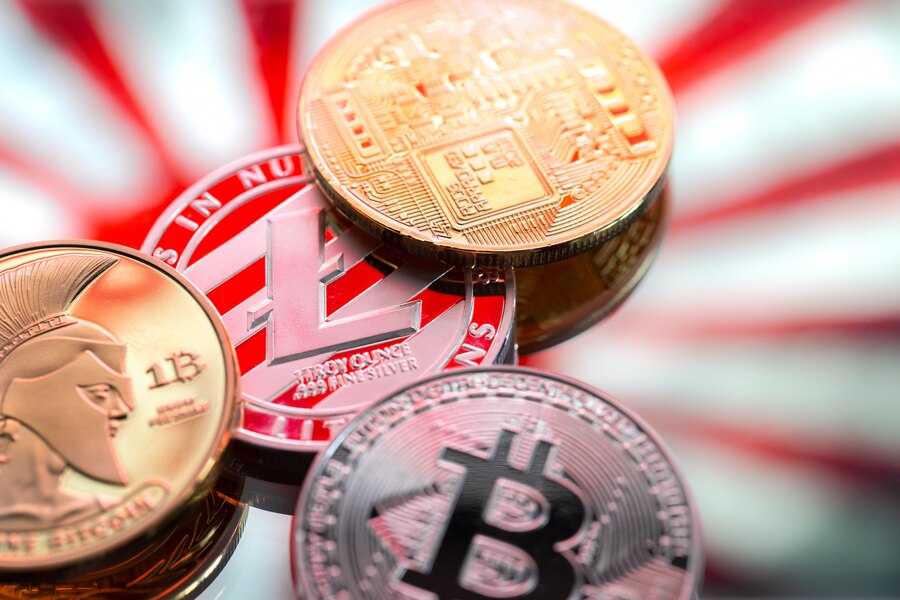- 1 Early Days of Cryptocurrency in Japan
- 2 Penetration rate of crypto in Japan
- 3 The reasons why cryptocurrency has not penetrated Japan
Japan is renowned for its cutting-edge technology and electronics industry.
While the origins of blockchain technology are attributed to a creator who has a Japanese name, the widespread adoption and popularity of virtual currencies in Japan remain intriguing questions. In this article, we delve into the depths of the virtual currency landscape in Japan, exploring its popularity and penetration rate.
Early Days of Cryptocurrency in Japan
Since 2017, cryptocurrencies have been a hot topic in Japan, particularly on social media platforms. The rise of individuals amassing fortunes in the cryptocurrency market, often highlighted on television and in magazines, has significantly raised awareness of these digital assets.
Capitalizing on this cryptocurrency boom, Japan took the lead in implementing regulatory measures concerning cryptocurrencies, making it a pioneer in the global landscape of digital asset legislation.
Penetration rate of crypto in Japan
Japan, among the first countries in the world to establish regulatory frameworks, still struggles with relatively low adoption rates of cryptocurrencies. While some may have heard of Bitcoin (BTC), one of the most well-known cryptocurrencies, there remains a significant portion of the population who is unfamiliar with the concept of cryptocurrencies altogether in Japan.
Moreover, misconceptions persist, with some people mistakenly believing that cryptocurrencies and Bitcoin (BTC) are one and the same, while others consider them entirely unrelated. Despite having encountered terms like “cryptocurrencies” and “Bitcoin (BTC),” a substantial number of individuals lack a comprehensive understanding of their underlying mechanisms.
Given this backdrop, the penetration rate of cryptocurrencies in Japan continues to be modest, partly attributed to the lack of widespread comprehension surrounding their nature and functionality.
The reasons why cryptocurrency has not penetrated Japan
So why is cryptocurrency not popular in Japan? There are two main reasons for this.
Lack of need
In developing countries facing political instability or economic crises, there are instances where cryptocurrencies are utilized as a contingency measure when access to the national currency becomes limited.
Additionally, due to lower transaction costs, it is not uncommon for individuals working abroad to send remittances back to their home countries using virtual currencies.
On the other hand, the necessity for cryptocurrencies in Japan is not as pronounced when compared to the examples mentioned earlier. This is due to the high level of trust in the Japanese yen, which serves as legal tender within the country.
Additionally, during global uncertainties when the value of the US dollar weakens, the Japanese yen is sometimes sought after as a safe currency, further reinforcing its credibility.
The bad image of cryptocurrency
The first incident that brought cryptocurrency to public attention in Japan was the 2014 Mt. Gox incident, which involved the disappearance of Bitcoin (BTC).
The issue with this incident lay not in the Bitcoin (BTC) protocol itself but rather in the management practices of the service provider.
Nevertheless, the Mt. Gox incident contributed to establishing a prevailing perception of cryptocurrencies in Japan as “risky” or “suspicious.” Such negative associations from past events may have played a role in impacting the adoption rate of cryptocurrencies in the country.
Services that accept cryptocurrencies in Japan
Cryptocurrencies are predominantly used for investment purposes in Japan, but there are various practical applications in daily life as well. Here are some examples:
Payment of Public Utilities
Some cryptocurrency exchanges offer services for paying public utility bills, allowing users to pay their regular electricity and gas bills using Bitcoin. CoinCheck, for instance, has gained popularity by providing discounts to users who utilize this service. Even major gas companies like Nichigas now accept Bitcoin payments, leading to an increase in its usage due to the convenience it offers.
Shopping
Though the number is limited, there is a gradual increase in the availability of shops that accept Bitcoin for purchases. Some well-known stores, such as Bic Camera, Megane Super, Kojima, and H.I.S., allow Bitcoin payments. Furthermore, there are more shops accepting Bitcoin including beauty salons, restaurants, and clinics.
As demand continues to rise, more and more stores are expected to adopt cryptocurrency payments, making them even more convenient in the future.
Online Casinos
In the realm of online casinos, Bitcoin is becoming the default payment method. According to onlinecasinojapan.com, the popularity of online casinos surged during the COVID-19 pandemic as people sought alternative entertainment while unable to visit physical venues like pachinko parlors. Online casinos’ all-in-one experience aligns well with the compatibility of cryptocurrencies. Players not only get to enjoy games but also have the chance to win and increase their fortunes, making it an increasingly favored method of use.
Conclusion
While Japan may have laid the groundwork for crypto regulation and witnessed a surge in interest in cryptocurrencies, it still faces challenges in increasing their everyday use.
Overcoming misconceptions and negative perceptions will be crucial for fostering wider adoption in the future. As the landscape of cryptocurrencies continues to evolve, Japan’s approach to virtual currencies may also undergo changes, potentially leading to increased acceptance and integration into daily life.
